Putting Our Knowledge And Experience To Work
Home » Birth Injuries » Infant Seizures
Infant Seizures in Kentucky and Ohio
As much as we wish it was, modern medicine is not a perfect art. Mistakes happen all the time all over the world, causing many patients a lifetime of suffering. While medical malpractice injuries are always tragic, they’re even more tragic when babies are the victims in question. Unfortunately, many negligence-based birth injuries can lead to infant seizures and brain damage.
If you and your baby have suffered from a traumatic birth injury, you have grounds to file a lawsuit with the guidance of an Ohio or Kentucky birth injury attorney. At The Lawrence Firm, PSC, we prioritize every attorney-client relationship while putting up the best possible fight in the courtroom. We’re passionate about achieving justice for every single client. For more information on how our Covington birth injury attorneys can fight for you, call our Kentucky law office at 859-578-9130 or our Ohio law office at 513-651-4130 today.
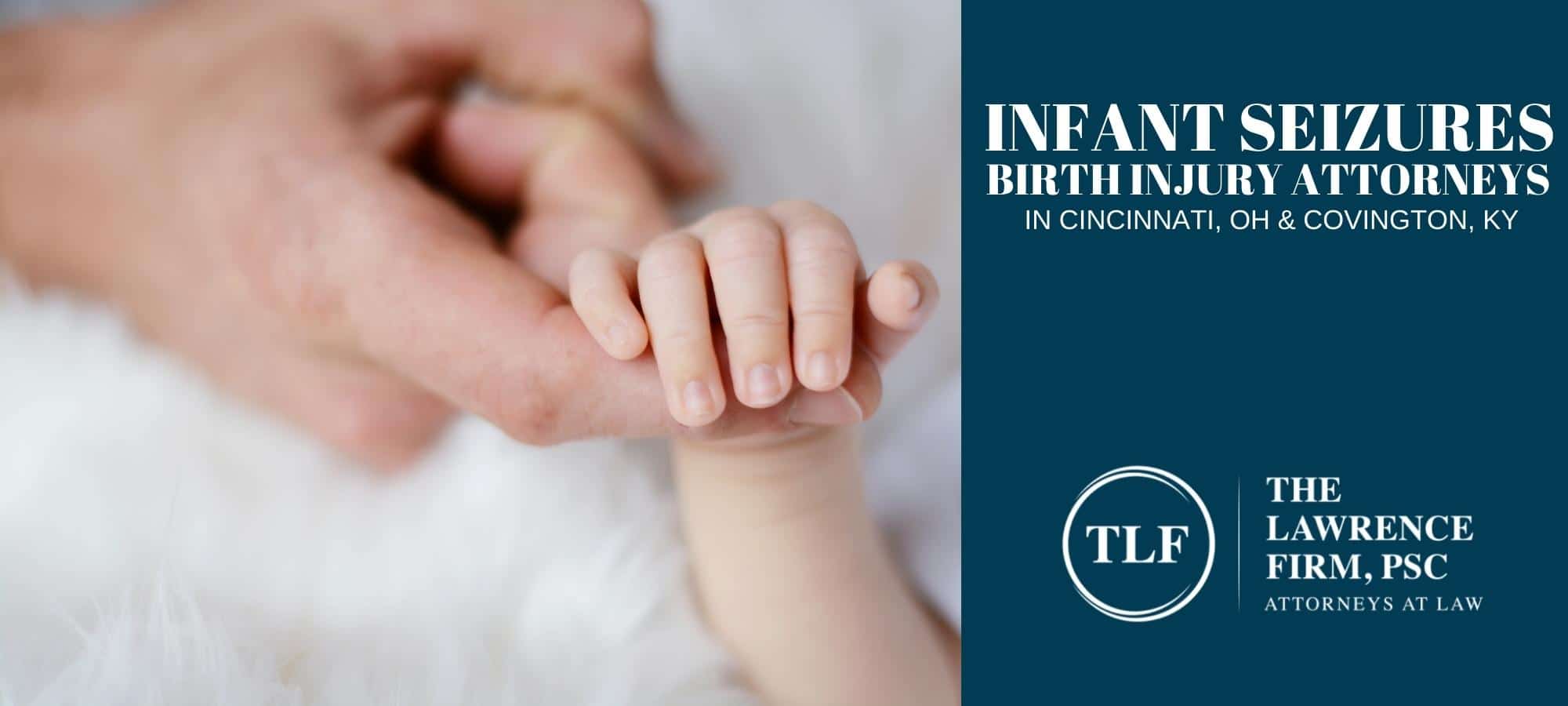
Can Newborns Have Seizures?
Babies can have seizures just like adults can. Newborn seizures, also known as neonatal seizures, are generally caused by abnormal electrical activity in the brain. According to data from the International League Against Epilepsy (ILAE), infant seizures are the most common neurological emergency in the first week to four weeks of a newborn’s life. In fact, between 1-5 infants per 1,000 live births suffer from neonatal seizures.
Types of Newborn Seizures
Unfortunately, a newborn baby can suffer from a variety of different seizures. Each type of seizure comes with a different set of signs and symptoms. If you think that your baby is suffering from any of the following types of seizures, make an appointment with your baby’s health care provider immediately.
Subtle Seizures
Subtle seizures are the most common type of infant seizures. These are often hard to spot because the symptoms look like normal movements among babies. If you notice your baby’s eyes rolling or staring, tongue protruding, or legs moving in cycling motions, they may be suffering from a subtle seizure. Delays between breaths can also be a sign of subtle seizures.
Tonic Seizures
Muscle stiffness is the main symptom of tonic seizures. If you notice your baby’s body suddenly stiffening for about 20 seconds at a time, they could be suffering from a tonic seizure. Other sudden muscle stiffening symptoms in babies that may indicate a tonic seizure include:
- Bending and holding their arms or legs in unnatural positions
- Holding their head to one side
- Looking to one side
There are two types of tonic seizures: focal tonic seizures and generalized tonic seizures. Focal seizures occur in one lobe of the brain while generalized seizures occur in both lobes of the brain. It’s certainly possible for a tonic seizure to begin focally and then spread to both lobes.
Clonic or Myoclonic Seizures
Clonic seizures are characterized by repetitive, uncontrollable muscle jerking or twitching. You may notice your baby’s face, shoulder, hand, limb, or tongue twitching for about 20 to 60 seconds if they’re suffering from this type of seizure. Myoclonic seizures are very similar to clonic seizures, so it can be difficult to identify which one is which, especially in infants. Myoclonic muscle jerking or twitching is often short-lived and irregular compared to clonic muscle jerking. For example, if your baby suffers from myoclonic seizures, they may jerk or twitch their legs once or twice in the span of a minute. Clonic seizures can also happen in 1 lobe of the brain or both.
Tonic-Clonic Seizures
Tonic-clonic seizures, formally called grand mal seizures, involve both muscle stiffening and muscle jerking. This seizure occurs in two phases: the tonic phase and the clonic phase. It’s important to note that tonic-clonic seizures are incredibly rare for babies under 2 years old. They’re most commonly seen in older children, teens, and adults with epilepsy.
The tonic phase is basically a tonic seizure. You’ll notice your baby or child stiffen its muscles or hold awkward positions for 20 to 60 seconds. They may also lose consciousness, fall to the ground, and make groaning noises. It’s also common for children and adults to bite their tongues hard enough to draw blood during the tonic phase.
The clonic phase is next. In this phase, you may notice your baby or child jerk their body repetitively and uncontrollably. It’s also very common for sufferers to lose bladder or bowel control during the clonic phase.
Tonic-clonic seizures generally last between 1 to 3 minutes and can be incredibly dangerous, especially if the person hits their head while falling, jerking, or losing consciousness. Tonic-clonic seizures that last longer than 5 minutes are life-threatening emergencies and may lead to brain injury that requires immediate medical attention.
Febrile Seizures
Febrile seizures most commonly occur in babies and children and are strictly caused by high fevers above 100.4 degrees Fahrenheit. Common symptoms include muscle jerking, losing consciousness, and eye-rolling. Any baby or child can have a febrile seizure, even if they’ve never had any other neurological disorders or symptoms before.
Atonic Seizures
Atonic seizures are characterized by sudden muscular limpness. For example, you may be holding your baby and suddenly notice their body go limp for 20 to 60 seconds.
Infantile Spasms
Infantile spasms occur most often when a baby is waking up. They’re often characterized by a “jackknife” movement, wherein the baby’s body suddenly bends forward, pulls its knees up, and flails its arms out to the side. A baby may also throw its head back while stiffening its limbs during this type of spasm. These spasms are quick, only lasting a couple of seconds. But babies can experience up to 100 spasms a day. Untreated infantile spasms can lead to intellectual disabilities and severe epilepsy later in life.
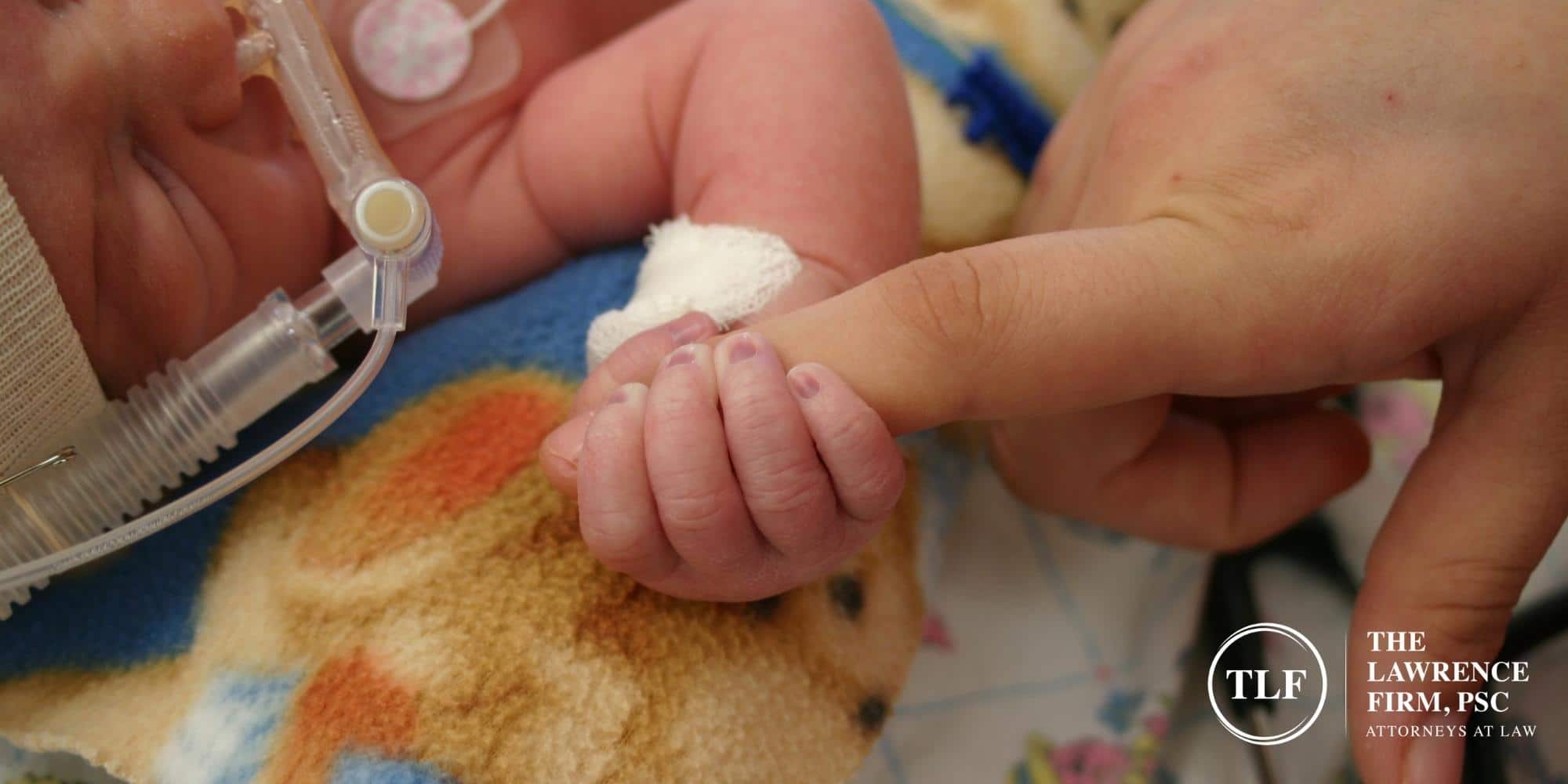
Infant Seizures vs. Infant Reflexes
Many parents struggle to determine the difference between infant seizure symptoms and reflexes. Oftentimes, the movements from both seizures and reflexes look the same in babies. Below are different types of reflexes that may resemble infant seizures:
Moro Reflex
The Moro reflex – also called the startle reflex – is something that babies typically outgrow within the 3 to 6-month mark. Basically, when a baby is startled by a loud sound or sudden movement, it will throw its head back, extend its limbs, and cry. This reflex is completely normal and healthy during infant development.
Tonic Neck Reflex
The tonic neck reflex is often called the fencing reflex. This is because while babies are laying down they’ll often extend one arm, turn their head towards the extended arm, and bend the other arm like they’re in a fencing stance. Babies may also look around, smack their lips, and pedal their legs. Those are also normal elements of the reflex. As long as there’s no muscle jerking or stiffening, there’s no cause for concern. Parents may notice their babies perform the tonic neck reflex until they’re about 9 months old.
What To Do if Your Infant Has a Seizure
It’s important to remember that the best thing you can do as a parent or caregiver is to just protect your baby’s life during an infant seizure. You can do this by protecting the baby’s head from sharp objects and making sure there’s nothing in their mouth while they’re seizing. Don’t try to stop their mouth movements, such as cheek or tongue biting, because this can cause further injury. Lastly, roll them onto their side when they’re in a safe area to prevent choking on saliva or vomit during the seizure.
After the episode has stopped, you should seek medical treatment for your child right away. Medical professionals like pediatric specialists can help determine the cause of your baby’s seizure and explore different methods that may help prevent or treat these seizures.
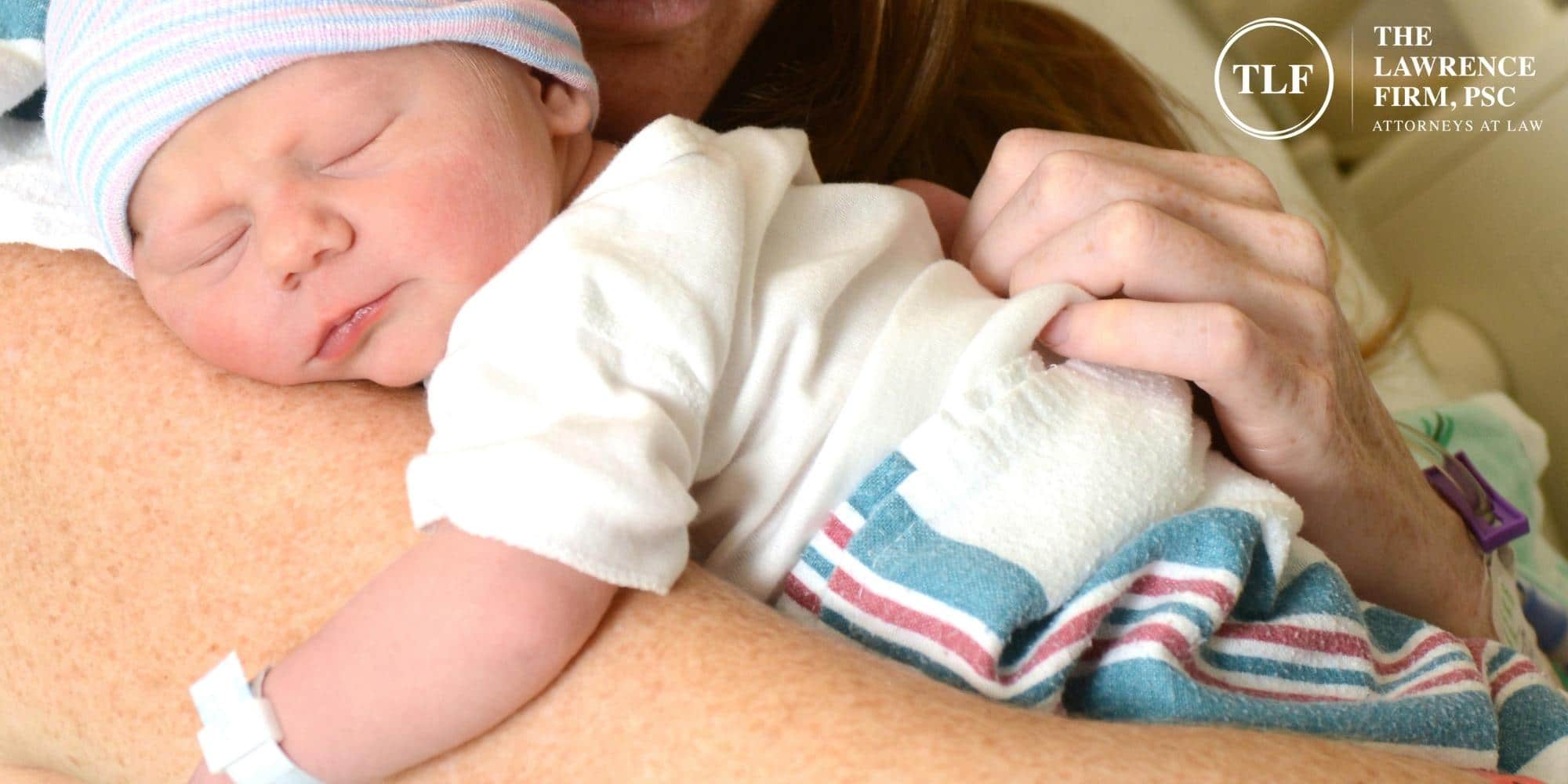
What Causes Seizures in Newborn Babies?
Infant seizures are either caused by naturally occurring neurological disorders or severe birth injuries that may be caused by medical malpractice.
Natural Causes
Natural causes of neonatal seizures can include:
- Abnormal brain development during pregnancy
- An illness or virus that causes high fever
- A genetic disorder
- Encephalitis, which is a brain infection
- Meningitis, which is an infection of the tissue covering the brain
These health issues can, unfortunately, cause long-term brain damage and brain injuries.
Medical Malpractice / Birth Injury
Unfortunately, a large number of seizures in the neonatal period are caused by medical malpractice incidents which often result in birth injuries. If your baby is suffering from seizures due to one of the following medical negligence cases (or one that may be unlisted), you may be eligible for financial compensation.
- Dangerous delivery methods, such as using forceps or vacuum extractors
- Failing to provide appropriate prenatal or postnatal care to mother and baby
- Failing to diagnose a macrosomic baby (a baby that weighs more than 8lbs, 13oz)
- Incorrect diagnosis or treatment of a mother’s health condition while pregnant (for example, preeclampsia)
- Lack of oxygen to the brain
- Not responding appropriately when a baby is in distress, whether they’re inside or outside the womb
- Failing to deliver a distressed baby on time, whether it is a vaginal delivery or failure to perform a C-section
- Failing to control bleeding from the mother or baby in a timely manner
- Incorrectly resuscitating an infant
- Incorrectly using hypothermic treatment (also known as induced hypothermia) which is a treatment that can limit damage to a baby’s brain after suffering from oxygen deprivation
A doctor who commits medical malpractice during labor and delivery can cause birth injuries such as cerebral palsy, shoulder dystocia, hypoxic or ischemic brain injury, brachial plexus injuries, hydrocephalus, and so much more. All of the previously mentioned birth injuries are causes of birth injuries that may result in excessive or abnormal brain cell activity, and therefore, seizures. To see if you have a case, speak with one of our Kentucky or Ohio medical malpractice attorneys at The Lawrence Firm today.
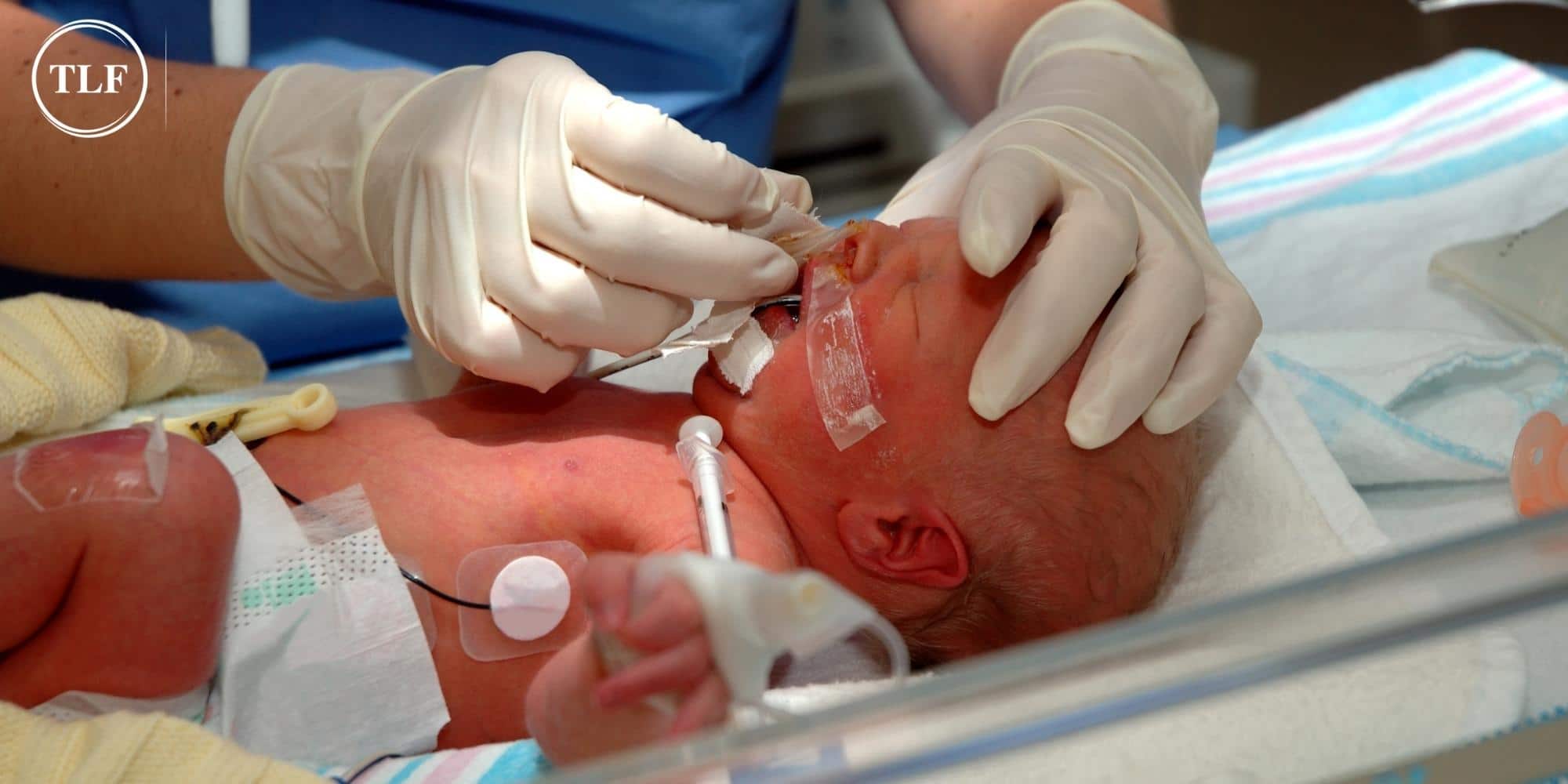
Testing for Neonatal Seizures
Testing for neonatal seizures is just like testing for adult seizures. Doctors will generally run a series of imaging tests like an EEG, an MRI, and even a CT scan to get a good picture of the brain and the electrical activity going on inside.
Treating Neonatal Seizures
If your baby is showing signs of frequent seizures, it’s important for them to receive treatment immediately. If your baby’s seizures are caused by not receiving enough oxygen, a doctor may recommend hypothermic treatment. Like all treatments, induced hypothermia in babies comes with its own set of risks. But a properly performed hypothermia treatment involves cooling the baby’s brain and body enough to prevent further brain damage. In some cases, this cooling therapy can potentially prevent cerebral palsy.
A doctor may also prescribe anti-seizure medications like Zonisamide, Phenytoin, and Phenobarbital. However if a doctor determines that your baby’s seizures are coming from a specific condition like cerebral palsy, meningitis, encephalitis, etc., then they will treat those disorders appropriately. The correct treatment for these disorders can certainly manage the severity and frequency of infant seizures. On the other hand, negligent medical treatment can enhance the risk of these seizures and lead to other dangerous injuries or disabilities.
Can I File a Medical Malpractice Lawsuit for My Infant’s Seizures?
If you believe that your baby’s seizures are caused by medical malpractice during labor and delivery, you may be able to file a lawsuit against the responsible physician(s). An experienced Ohio and Kentucky birth injury lawyer at The Lawrence Firm can support and guide you through the process, help you gather evidence for your case, and fight for you and your baby’s justice in the courtroom. Though compensation may not help reverse your child’s injuries, it can help cover the costs of treatment that may be associated with the injury and can hold the liable parties accountable for their negligent actions.
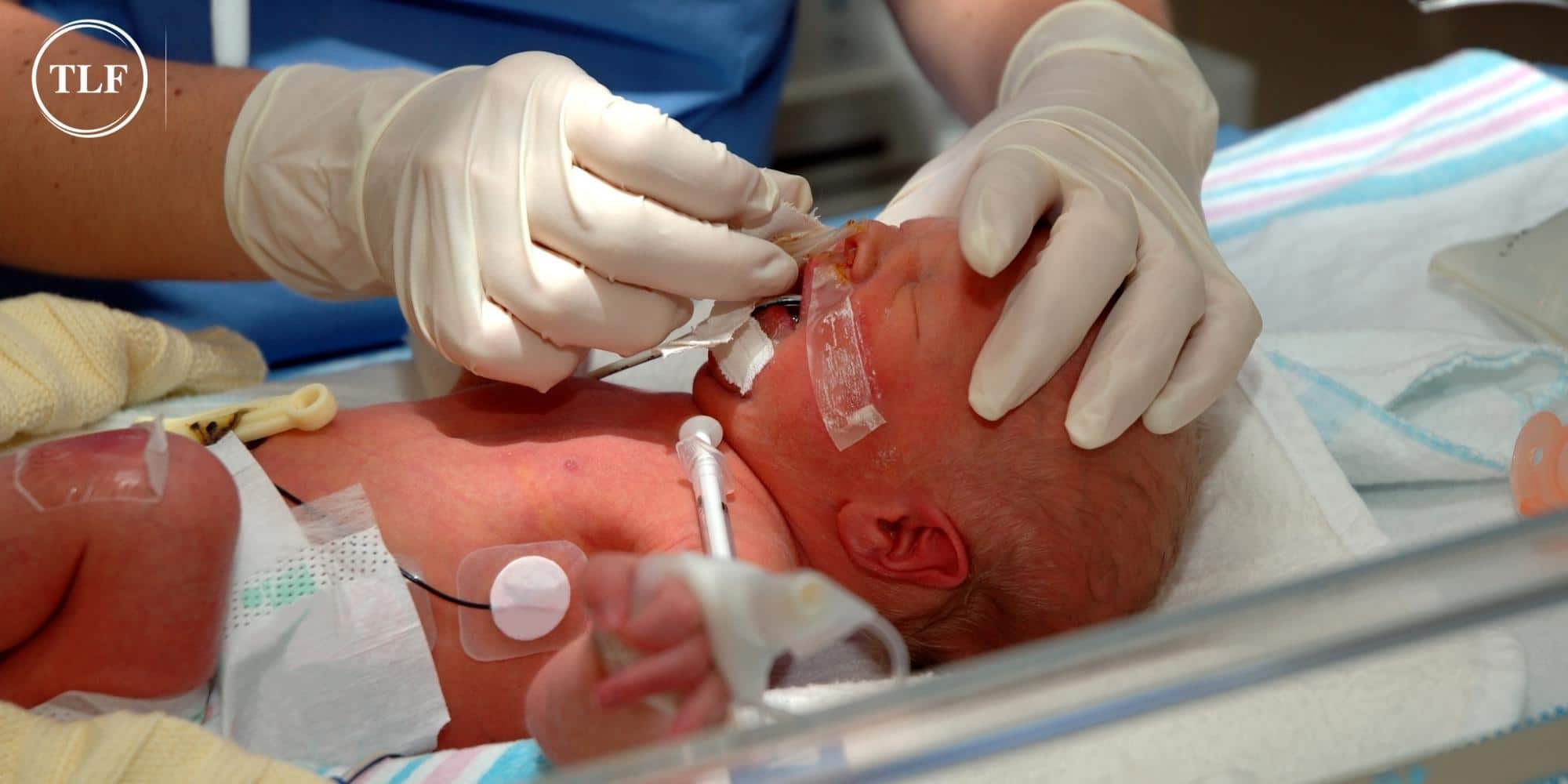
Call The Cincinnati & Covington Birth Injury Attorneys at The Lawrence Firm for a Free Consultation Today
Our Ohio and Kentucky personal injury lawyers at The Lawrence Firm, PSC, have decades of combined experience in handling birth injury claims and other types of pediatric malpractice cases. We wholeheartedly sympathize with parents who have to watch their babies suffer from chronic seizures and other medically-induced birth injuries. When you hire us, we’ll fight for the best lawsuit outcome possible. Call a Kentucky birth injury lawyer at 859-578-9130 or an Ohio birth injury lawyer at 513-651-4130 today for a free consultation.
Practice Areas
You Pay No Fees Unless We Win!
We are happy to offer a free consultation to evaluate your case. If you hire us as your legal counsel, we will represent you on a contingency-fee basis. You will pay no attorneys’ fees unless we recover financial damages.
